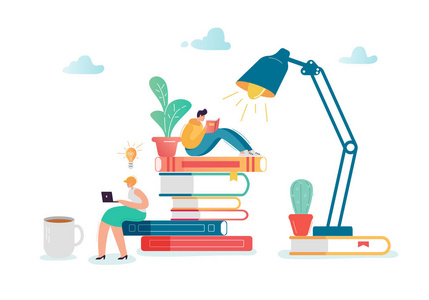The ancients said that "learning can not be", this sentence reveals the importance and durability of learning. Paying attention to learning is the fine tradition of the Chinese nation. From ancient times to the present, no matter how the times change, this tradition has not changed. In contemporary China, people have the same understanding of learning as the ancients and different places. This article will explore the understanding and practice of learning from modern society from the aspects of the purpose, value, content, methods, methods, and evaluation standards of learning.
First of all, the purpose of learning has similarities and differences in ancient and modern. The main purpose of the ancients to learn is to self -cultivate the Qi family to govern the country, and emphasize personal moral cultivation and social responsibility. In the Confucian classics, such as the Analects of Confucius and Mencius, both emphasized the importance of learning and believed that through learning, it can improve personal moral cultivation and benefit the society. In contemporary, the purpose of learning is not limited to personal cultivation and social responsibility, but also includes career development, personal interests, and self -worth. Modern society is fiercely competitive and the knowledge is updated rapidly. People continue to improve their professional skills to meet the needs of social development. At the same time, learning has also become an important part of personal hobbies. More and more people enrich their lives by learning new skills and knowledge and realize self -worth.
Secondly, the value of learning is also different in ancient and modern. The ancients believed that learning was for understanding and self -cultivation. Through learning, they could understand the truth and improve their moral cultivation, thus becoming a moral person. Zhu Xi said: "Scholars are because they are also", emphasizing the inherent value and moral pursuit of learning. In modern society, the value of learning is more diversified. In addition to traditional moral value, learning also has economic and social value. Through learning, people can get more knowledge and skills, thereby enhancing their competitiveness and gaining better job opportunities and income. At the same time, learning is also an important driving force for social progress. The spread of knowledge and innovation is an important factor in promoting social development.

Third, the content of learning is constantly changing. The ancient learning content was mainly concentrated in classic works such as the Four Books and Five Classics, Poetry Books and Easy Easy, and emphasized humanistic knowledge such as literature, history, and philosophy. Today, the content of learning is more extensive and diverse. The rapid development of science and technology has enabled people to learn not only limited to humanities, but also in the fields of natural sciences, engineering technology, and information technology. In the modern education system, in addition to traditional humanities, science and engineering, economics, management and other disciplines also occupy an important position. At the same time, the study of interdisciplinary disciplines has also received more and more attention. Through comprehensive learning, students can cultivate students' innovative ability and the ability to solve practical problems.
The method of learning is also very different in ancient and modern. The ancient learning methods were mainly through the teachings and self -study of teachers and apprentices, emphasizing reading, recitation and understanding. Confucius said, "Do you say that you learn it when you learn it?" Emphasizing the consolidation of knowledge by constantly reviewing and practicing. In modern society, learning methods are more diverse and flexible. The development of modern technology makes online learning and distance education possible. People can obtain knowledge and learn through the Internet anytime, anywhere. In addition, new learning methods such as team learning and cooperative learning are becoming more and more popular. Through exchanges and cooperation, the efficiency and effect of learning are improved.
The way of learning is also expanding. The ancient learning pathway was mainly through family education and academy education. The scarcity of books made the way of learning relatively limited. Today, there are many ways to learn. School education is still the main learning channel, but the role of social education and self -education is becoming more and more important. Public cultural facilities such as libraries, museums, science and technology museums provide rich learning resources for people. Various training institutions and learning classes also provide learning opportunities for people of different needs. The popularity of the Internet has greatly expanded the way of learning. Online courses, electronic books, learning software, etc. provide convenient learning methods.

The changes in evaluation standards are also an important aspect of learning. Ancient learning evaluation standards were mainly achieved through the academic evaluation between the imperial examinations and the academic evaluation between the scholars. Exam results and academic status were important criteria for evaluating learning results. In modern society, the evaluation standards for learning are more diverse and comprehensive. In addition to traditional test results, learning ability, innovation ability, and practical ability are also an important criterion for evaluating learning results. The modern education system pays more attention to the comprehensive quality and comprehensive development of students, and promotes the comprehensive development of students through diversified evaluation methods.
In ancient society, the imperial examination test was the only way to the official career. The test results almost determined the social status and future of a person. Although this single evaluation standard has promoted the spread of knowledge and academic development to a certain extent, there is also obvious limitations. The exam -oriented education model has led to the phenomenon of dead memories and the exams, and ignores the cultivation of students' comprehensive quality and practical ability. In addition, the content and form of the imperial examinations also limit the diversity and innovation of knowledge, making the academic field lack vitality and creativity.
In contrast, modern society's evaluation standards for learning are more diversified and flexible. In addition to test results, the modern education system pays more attention to the comprehensive quality and comprehensive development of students. For example, in the basic education stage, the school not only pays attention to students' subject scores, but also pays attention to their moral quality, physical fitness, artistic accomplishment and social practice ability. Through a variety of evaluation methods, schools can fully understand the growth of students and help them develop in different aspects.

In addition, innovation and practical ability have also become an important criterion for the results of modern social evaluation and learning. With the advancement of science and technology and the rapid development of society, innovation ability has become an important manifestation of individual and social competitiveness. In this context, the modern education system pays more attention to cultivating students' awareness and innovation ability. Many schools and education institutions encourage students to think and have courage to innovate independently by conducting various innovative courses, scientific and technological competitions and experimental projects. This not only improves students' learning interest and enthusiasm, but also cultivates a large number of innovative talents for the society.
Practical ability is also an important part of modern learning evaluation. The theoretical knowledge is important, but if the ability of practical applications is lacking, it will be difficult to play a role in real life. The modern education system emphasizes the combination of theory and practice, and cultivates students' actual operation ability and problem -solving ability through internships, practical courses and social services. For example, many universities require students to complete certain internship or practical items before the end of the semester, as an important basis for academic evaluation. This practice -oriented evaluation method not only improves the comprehensive quality of students, but also enhances their social adaptability.
In addition, modern society's evaluation standards for learning also pay more attention to personalization and diversification. Each student has his own unique interests and advantages. It is difficult for traditional single evaluation standards to comprehensively reflect their learning results. The modern education system encourages teaching according to their aptitude, respects students' personality development, and discovers and cultivate the specialty of each student through a diversified evaluation method. For example, in addition to academic evaluation, many schools have also set up special awards in art, sports, technology and other aspects to encourage students to play their talents in different fields.
To sum up, learning as an important human activity has different understanding and practice in different times. The concept of the ancients still has important guiding significance today. The emphasis on learning and practice in modern society make the content, methods, methods, methods, and evaluation standards of learning more diverse and comprehensive. Learning is not only an important way for personal growth and development, but also an important driving force for social progress and civilization inheritance. By continuous learning, we can not only improve our knowledge and skills, realize personal value, but also contribute our own strength to the development and progress of society. In this era of information explosion and rapid knowledge, we need to maintain a lifelong learning attitude, actively adapt to changes, meet challenges, continuously improve ourselves, and contribute our wisdom and strength to the realization of better life and society.

图片源于网络